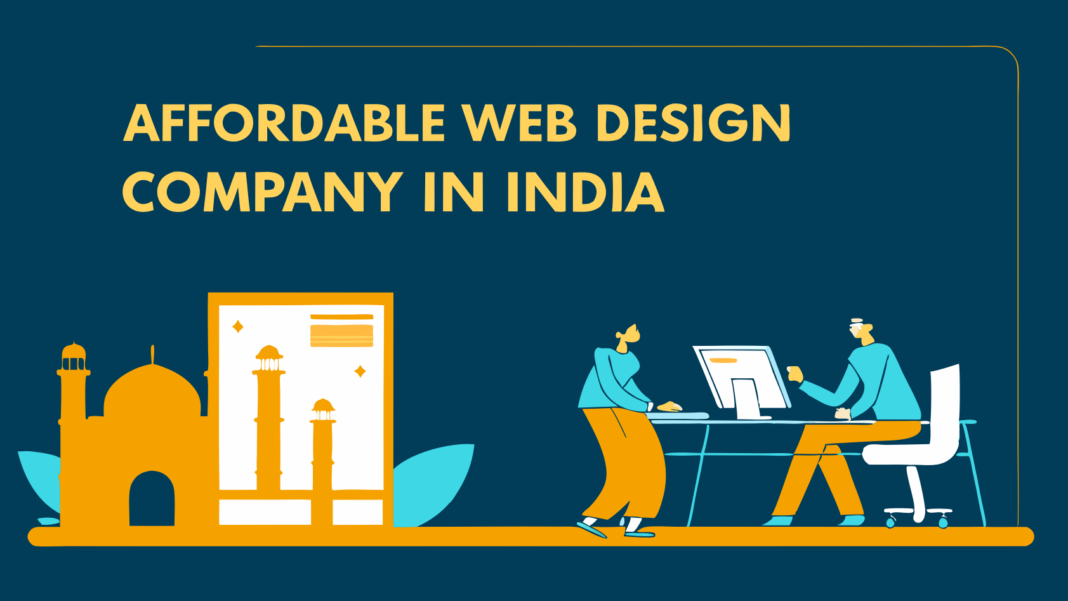In today’s fast-paced digital world, website speed has become a crucial factor in determining online success. Whether you’re running an e-commerce platform, a blog, or a corporate website, the time it takes for your pages to load can make or break your online presence. As an affordable web design company in India, we understand that speed optimization is not just about technical performance—it’s about delivering value to your visitors and maintaining a competitive edge.
The Impact of Website Speed on User Experience
First Impressions Matter
Research shows that users form an opinion about your website within 0.05 seconds of landing on your page. A slow-loading website can immediately create a negative impression, potentially driving visitors away before they even see your content.
The 3-Second Rule
Studies indicate that 53% of mobile users abandon sites that take longer than three seconds to load. This “3-second rule” has become a benchmark for website performance, emphasizing the critical nature of speed optimization.
Mobile User Experience
With mobile traffic accounting for over 60% of web visits, ensuring fast loading times on mobile devices is more important than ever. Mobile users often face varying network conditions, making speed optimization even more crucial for maintaining engagement.
How Website Speed Affects Your Business
Conversion Rates
Speed directly impacts your bottom line. Here’s how:
- Every 1-second delay in page load time leads to a 7% reduction in conversions
- Fast-loading sites have average session durations 70% longer than slow sites
- E-commerce sites can lose up to 20% in sales for every second of delay
SEO and Search Rankings
Google has explicitly stated that site speed is a ranking factor. A faster website can help you:
- Improve your search engine rankings
- Increase crawl efficiency for search engines
- Enhance core web vitals scores
- Achieve better mobile-first indexing results
Brand Perception
Your website speed influences how users perceive your brand:
- Fast sites are associated with professionalism and reliability
- Slow loading times can damage brand reputation
- Quick response times build trust and credibility
Key Factors Affecting Website Speed
Hosting Quality
Your hosting provider plays a crucial role in website performance. When working with an affordable web design company in India, ensure they recommend reliable hosting solutions that offer:
- Sufficient server resources
- Modern server hardware
- Content Delivery Network (CDN) integration
- Regular server maintenance and updates
Image Optimization
Images often account for the largest portion of page weight. Proper optimization includes:
- Compressing images without sacrificing quality
- Using appropriate image formats
- Implementing lazy loading
- Serving responsive images for different devices
Code Optimization
Clean, efficient code is essential for fast loading times:
- Minifying CSS, JavaScript, and HTML
- Reducing server response time
- Eliminating render-blocking resources
- Implementing browser caching
Best Practices for Improving Website Speed
Technical Optimization
- Enable compression for all resources
- Minimize HTTP requests
- Utilize browser caching effectively
- Optimize database queries
- Use asynchronous loading for scripts
Content Optimization
- Implement a content delivery network (CDN)
- Optimize images and multimedia content
- Remove unnecessary plugins and scripts
- Keep your CMS and plugins updated
- Regular performance monitoring and testing
Measuring Website Speed
Essential Tools for Speed Testing
- Google PageSpeed Insights
- GTmetrix
- Pingdom Tools
- WebPageTest
- Chrome DevTools
Key Metrics to Monitor
- Time to First Byte (TTFB)
- First Contentful Paint (FCP)
- Largest Contentful Paint (LCP)
- First Input Delay (FID)
- Cumulative Layout Shift (CLS)
How fast should my website load?
Ideally, your website should load within 2-3 seconds. However, faster is always better, with Google recommending under 2 seconds for e-commerce sites.
Does mobile speed differ from desktop speed?
Yes, mobile devices often experience slower loading times due to network conditions and hardware limitations. This makes mobile optimization particularly important.
Can website speed affect my SEO rankings?
Absolutely. Google considers page speed as a ranking factor, particularly for mobile searches. Faster websites typically rank better in search results.
How often should I test my website speed?
Regular testing is recommended, ideally at least once a month or after any significant changes to your website.
Is it expensive to improve website speed?
Not necessarily. Many speed improvements can be implemented cost-effectively, especially when working with an affordable web design company in India that specializes in optimization.
The Cost of Ignoring Website Speed
Neglecting website speed can have serious consequences:
- Higher bounce rates
- Lower conversion rates
- Reduced search engine rankings
- Decreased user satisfaction
- Lost revenue opportunities
- Competitive disadvantage
Conclusion
Website speed is not just a technical metric—it’s a fundamental aspect of user experience and business success. In an era where users expect instant gratification, a fast-loading website is no longer a luxury but a necessity. By implementing proper speed optimization techniques and regularly monitoring performance, you can ensure your website meets user expectations and drives business growth.
Remember that improving website speed is an ongoing process. Working with experienced professionals, such as an affordable web design company in India, can help you implement and maintain optimal performance standards while keeping costs manageable. The investment in speed optimization will pay dividends through improved user experience, higher conversion rates, and better search engine rankings.
